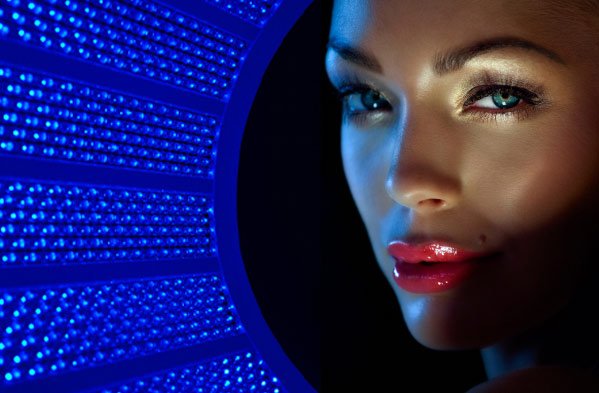What is Jet Lag?
Jet lag is an adverse temporary physiological condition that occurs when multiple times zones have been crossed quickly by aircraft. Travel along the world meridians interrupts the circadian rhythm to which the body is subject. During an average 24 hour cycle, circadian rhythms can be regulated by external factors of light and temperature. A special part of the brain, the suprachiasmatic nucleus, SCN, determines the circadian clock rhythms in humans. Beginning in the eye, receptors and neurons initiate the SCN to control many of the body’s regulatory mechanisms. More specifically, it determines production of the opposing hormones, melatonin and cortisol. Most significantly, active absorption of sunlight influences whether melatonin is produced. When the sun starts to dip low in the sky, the pineal gland produces measurable amounts of melatonin which creates the urge to sleep. Therefore with great distance travelled in an eastern or western direction, the sleep-wake cycle previously held at home will not match that of the destination. Could the internal clock adjust faster to the new hours of day and night?
How does jet lag get us all bent out of shape?
Let’s take it from the beginning. You are travelling to another country, crossing many time zones, hoping to chase some life-altering experiences, and you come up against the brick wall of jet lag. How does jet lag manifest in the body? It ruins your willingness and ability to go out and immerse yourself in all there is to explore. In a new time zone you could be dealing with a range in severity of symptoms. Acclimation can require multiple days. From personal experience, sleep hijacked my body during an outing. I was splayed backwards over the backrest of a restaurant chair asleep for an hour while my friends had a casual conversation. For me, that was jet lag at its worst. Does the body have to suffer through the symptoms commonly associated with jet lag? In this modern fast-paced world a quick solution is often sought out. We cannot wait patiently for the old adage of ‘seek out afternoon light and avoid morning light when travelling east’ to set to work. So many have explored the use of LED lights to correct the circadian clock during travel.
and ability to go out and immerse yourself in all there is to explore. In a new time zone you could be dealing with a range in severity of symptoms. Acclimation can require multiple days. From personal experience, sleep hijacked my body during an outing. I was splayed backwards over the backrest of a restaurant chair asleep for an hour while my friends had a casual conversation. For me, that was jet lag at its worst. Does the body have to suffer through the symptoms commonly associated with jet lag? In this modern fast-paced world a quick solution is often sought out. We cannot wait patiently for the old adage of ‘seek out afternoon light and avoid morning light when travelling east’ to set to work. So many have explored the use of LED lights to correct the circadian clock during travel.
Is there was an easier way to trick your brain?
We are beginning to use artificial light to advance or delay the internal clock. For the German Skiing Association (DSV), glasses equipped with 20 LEDs have already been giving their athletes that competitive edge required after a long flight. After only 15 minutes of use, these glasses can increase focus and reaction time. An Osram biologist (the company that teamed up with DSV) went on to add that the glasses may be used to “reduce passengers’ jet lag by speeding up their adjustment to the time at their destination through targeted light simulation.” On another front, Dr Russell Foster , a professor of neuroscience, has been researching the use of adjustable colour temperature lighting to fight jet lag. Foster and his team created a phone app to facilitate adjusting to a new time zone by varying lighting colours. It tracks progress from starting point to final destination and suggests the best lighting to seek out. This has applications in an automated programme within hotel rooms as well. Simply enter the original location and the lights could be modified in preparation for the stay. In conclusion, LED glasses, light temperature app, hotel lighting, and natural light, used alone or in combination, can all provide a way to diminish jet lag.
Who should use LED light correction for jet lag?
Obviously, we all would like to use this to our advantage. There are some key groups of people who would greatly benefit from using lighting to ward off jet lag. Athletes, business people, artists, jet travellers, and flight crews would probably be the first to test the possibilities. Consistent exposure to new time zones can have quite an impact on resuming ordinary life in extraordinary circumstances.
As a type of sleep disorder, what could be the long-term effects of repetitive jet lag?
Those who travel on a regular basis all over the globe may adjust well to the ill affects of sleep deprivation but should consider the less apparent risks as well. Prof Charles Czeisler from Harvard Medical School touches on the long-term affects of missing out on sleep: “cardiovascular disease, metabolic diseases like obesity and diabetes, and cancer.” On that note, besides seeking out artificial sources of light, here is a commonly sought out list of proactive measures one can take. This is not a direct cause-and-effect situation. Travelling back-and-forth, for extended periods, doesn’t mean one will end up with a serious, medical condition. There are always other factors to consider. Do not shy away from exploring this planet’s greatest secrets and offerings. Please use this information to shine a bit of light on the situation.






0 Comments